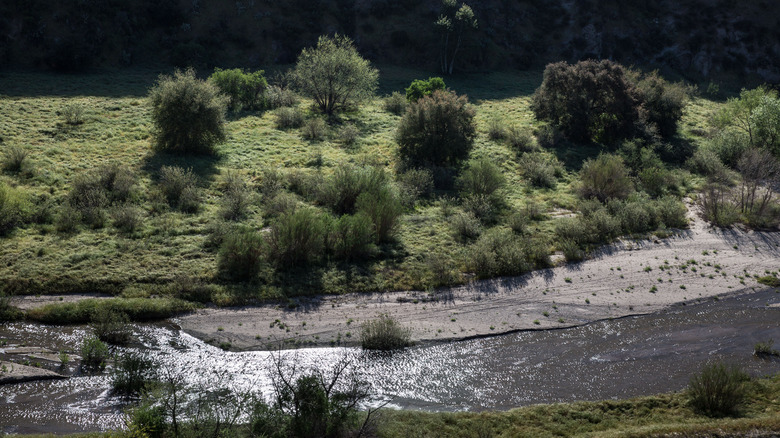Study Reveals A Surprising New Natural Painkiller
As the phrase goes, there is likely a pill for whatever ails you. And that's generally a good thing. Safe and regulated over-the-counter pain medications help people alleviate their suffering with pretty reliable results. But sometimes a pill just won't cut it. The pain might be chronic or the medication might not be on-hand.
Luckily researchers at Carleton University in Ottawa, Canada may have found a medication-free alternative. Some people can reap the pain-reducing benefits just by sitting outside for a little while, depending on where they are. Others can indulge in artificial versions on their phones or computers. And the best part is that the treatment not only reduces the amount of pain people perceive, but can also drop their cortisol levels and reduce their heart rate.
This might sound too good to be true, but the research is clear. If you're stressed, annoyed, or in pain, then you might want to head out on a nature walk. Because, as it turns out, the sounds of nature are a natural pai
As natural as it gets
Dr. Rachel Buxton, Ph.D, is a research associate in Carleton University's department of biology. And when it comes to natural sound, she is the person to go to. She has dedicated much of her career to protecting natural areas in North America and numerous countries around the world. Part of those efforts was looking for ways that natural spaces benefit humans.
She teamed up with several other researchers, including Dr. George Wittemyer, Ph.D at Colorado State University, and together they went over more than 30 studies that delved into the health impacts of exposure to nature sounds. They then published their review in Proceedings of the National Academy of Sciences of the United States.
The review compared the impacts of soundscapes based on water, on birdsong, and on a mixed collection of nature sounds. In the end, soundscapes with birdsong had the most impact on people who were stressed or annoyed. When they listened to the birds, their stress levels and perceived level of annoyance dropped. Soundscapes based on water, on the other hand, led to more pain reduction and calmer heart rates.
When Buxton spoke to Travel and Leisure about the results, she added that there was a drawback to these results. Noise pollution from humans, as it turns out, is so aggressive in some national parks that natural sounds don't register over them. The solution, according to the researchers, is to protect natural spaces more aggressively. Given the level of stress and anxiety most people face these days, they may just be right.


